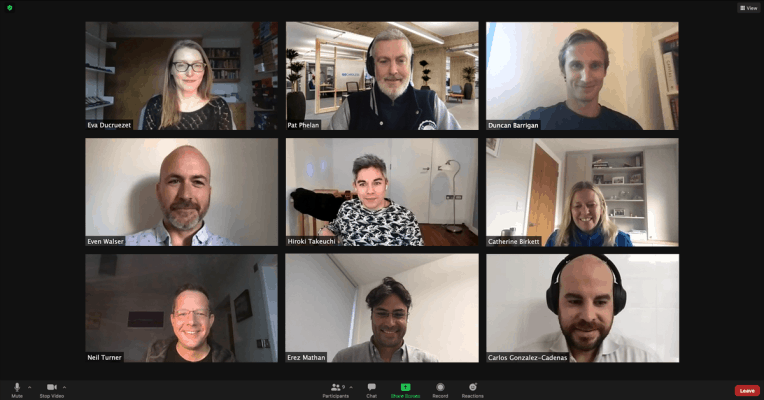Alex Andrade-Walz
Donor
Alex Andrade-Walz is Director of Marketing at Evernym, a market chief in self-sovereign character.
In November, Californians casted a ballot to pass Proposition 24, a voting form measure that forces new guidelines on the assortment of information by organizations. As a component of the California Privacy Rights Act (CPRA), people will currently reserve the privilege to quit the sharing and offer of their own data, while organizations must “sensibly” limit information assortment to secure client privacy.
For organizations like Apple, Facebook, Uber and Google, which are all settled in California, these new necessities may appear to be a constraint on their current information assortment capabilities.
Looking all the more intently, it’s a nuanced story: By not just gathering the requests of these new guidelines yet surpassing them, organizations have an occasion to separate themselves from contenders to develop their main concern, because of new advancements that put information protection in the possession of consumers.
Take Apple, the world’s most important tech organization, for instance. At the point when Google and Facebook — two of Apple’s biggest rivals — were enduring an onslaught for abusing client information, CEO Tim Cook saw an occasion to transform protection into a serious advantage.
The tech goliath revealed a set-up of new security augmenting highlights, incorporating another Sign In With Apple include that permits clients to safely sign in to applications without offering individual data to the applications’ designers. All the more as of late, the organization refreshed its security page to better feature how its lead applications are planned with protection in mind.
By not just gathering the requests of these new guidelines yet surpassing them, organizations have an occasion to separate themselves from their opposition.
This multiplying down on protection became the dominant focal point in the organization’s promoting efforts, as well, with “Security Matters” turning into the focal message of its ideal time air spots and its 10,000+ announcements around the world.
And obviously, the organization could barely oppose taking an intermittent punch at its information hungry competitors:
“The truth is, we could make a huge load of cash on the off chance that we adapted our client — if our client was our item,” said Cook in a meeting with MSNBC. “We’ve chosen not to do that.”
Apple’s obligation to protection not just places them in a more grounded position to follow new CPRA guidelines. It likewise sends a solid message to an industry that has benefitted off of client information, and a significantly more grounded message to purchasers: It’s an ideal opportunity to regard individual data.
The developing interest for privacy
The prioritization of buyer information security emerges from a need to address developing customer concerns, which have reliably stood out as truly newsworthy as of late. Eye catching stories, for example, the Cambridge Analytica information security outrage, just as significant breaks at organizations, for example, Equifax, have left purchasers pondering whom they can trust and how they can ensure themselves. Furthermore, the examination is pretty definitive — customers need more out of their organizations and governments:
- Only 52% of buyers feel like they can confide in organizations, and just 41% overall trust their legislatures (Edelman).
- 85% of shoppers accept organizations should accomplish more to effectively ensure their information (IBM).
- 61% of buyers state their feelings of dread of having individual information traded off have expanded over the most recent two years (Salesforce).
It’s difficult to state precisely how this trust emergency will show in the worldwide economy, however we’ve just observed a few huge blacklists, similar to the #DeleteFacebook development, and an amazing 75% of buyers who state they won’t buy from an organization they don’t trust with their data.
And it’s not simply Big Tech. From faithfulness projects and stock intending to savvy urban areas and political race promoting, it’s difficult to overestimate the hunger — and impact — of utilizing information to upgrade cycles and drive social change.
As we look toward another information driven decade, nonetheless, we’re beginning to understand the expense of this enormous information weapons contest: Consumers have lost trust in both the private and public sectors.
Private area activities like Apple’s reinforced obligation to security, close by open strategy enactment like the CPRA, can possibly work back buyer trust as well as to go much further past the base prerequisites. On account of new advances such as self-sovereign character, organizations can change their information security strategies, while reducing expenses, lessening misrepresentation and improving client experiences.
The estimation of SSI
Self-sovereign character (or SSI) use a meager layer of dispersed record innovation and a portion of cutting edge cryptography to empower organizations to demonstrate the personalities of their clients, without putting protection at risk.
At its least complex, SSI is a method of giving shoppers more command over their own data. It offers a path for buyers to carefully store and oversee individual data (as certain accreditations) that are given and endorsed by a confided in power (like an administration, bank or college) in a way that can never be changed, decorated or controlled. Purchasers would then be able to share this data when, where and with whom they wish as a method of demonstrating things about themselves.
While sharing advanced records online is the same old thing, SSI changes the game in two central ways:
- Organizations can catch the necessary information, without overcollection. Dissimilar to the actual accreditations we convey in our wallets, similar to driver’s licenses and protection cards, a computerized obvious qualification can be isolated into singular ascribes, which can be shared separately.
The exemplary model is strolling into a bar and demonstrating the bouncer your driver’s permit to confirm that you are of lawful age. The card uncovers the fundamental information, yet it additionally incorporates data that the bar should not be knowing —, for example, your name and address. With evident accreditations, we can share evidence old enough without uncovering anything else.
For touchy cases, self-sovereign personality even permits us to cryptographically demonstrate something important to us without uncovering the genuine information. For this situation, we could give a yes/no response to whether we are of a lawful age, without uncovering our date of birth.
For people, information minimization speaks to an extraordinary step forward in security. For associations, it’s a method of dodging the monstrous risk of putting away and making sure about abundance by and by recognizable information.
- Correlation turns out to be a whole lot harder. While there are the individuals who state security is a legend and our information will all be corresponded in any case, self-sovereign character ensures us against a considerable lot of the main worries with other advanced personality solutions.
For model, on the off chance that we take a gander at different apparatuses that give us some degree of information convenientce, similar to single-sign-on, there is consistently a worry that a solitary part in the center can follow what we do on the web. There’s an explanation those Facebook advertisements are shockingly important: They know each site and application we have endorsed into utilizing our Facebook profile.
With SSI, there’s nobody player or unified library in the center. Verifiers (those mentioning a personality confirmation) can check the validness cryptographically, which means they don’t need to “telephone home” to the first accreditation guarantor and the qualification backer has no chance to get of knowing when, where or to whom a certification was shared. No correlatable marks are shared, and your computerized character is really heavily influenced by you and for your eyes only.
As an outcome, the buyer profits by better protection and security, while organizations advantage from:
- Reduced extortion, with better, more exact information confirmation at the hour of record creation.
- Reduced grating, with a drastically quicker sign-up process.
- Reduced costs, both from time investment funds and from more astute KYC consistence (which regularly costs enormous banks $500 million+ each year).
- Increased effectiveness, with less to and fro checking outsider data.
- Better client encounters, with the capacity to make a customized, omnichannel client experience without information harvesting.
And it’s not sci-fi, all things considered. A few significant governments, organizations and NGOs have just dispatched self-sovereign arrangements. These incorporate monetary establishments like UNIFY, Desert Financial and TruWest, medical services associations like Providence Health and the NHS, and telecom and travel monsters like LG and the International Air Transport Association.
It’s not satisfactory how soon the innovation will get omnipresent, however plainly security is rapidly arising as the following serious landmark. Recently passed guidelines like CPRA arrange the measures organizations need to take, however it’s buyer desires that will drive long haul shifts inside the organizations themselves.
For those on top of things, there will be critical cost reserve funds and development — particularly as clients begin to move their reliability toward those organizations that regard and secure their protection. For every other person, it will be a significant reminder as buyers request to reclaim their data.




